Why the local fish and chip shop is a big threat to shark numbers
Wildlife filmmaker Megan McCubbin first got close to a tiger shark eight years ago. She talks to James Rampton about the importance of these misunderstood creatures

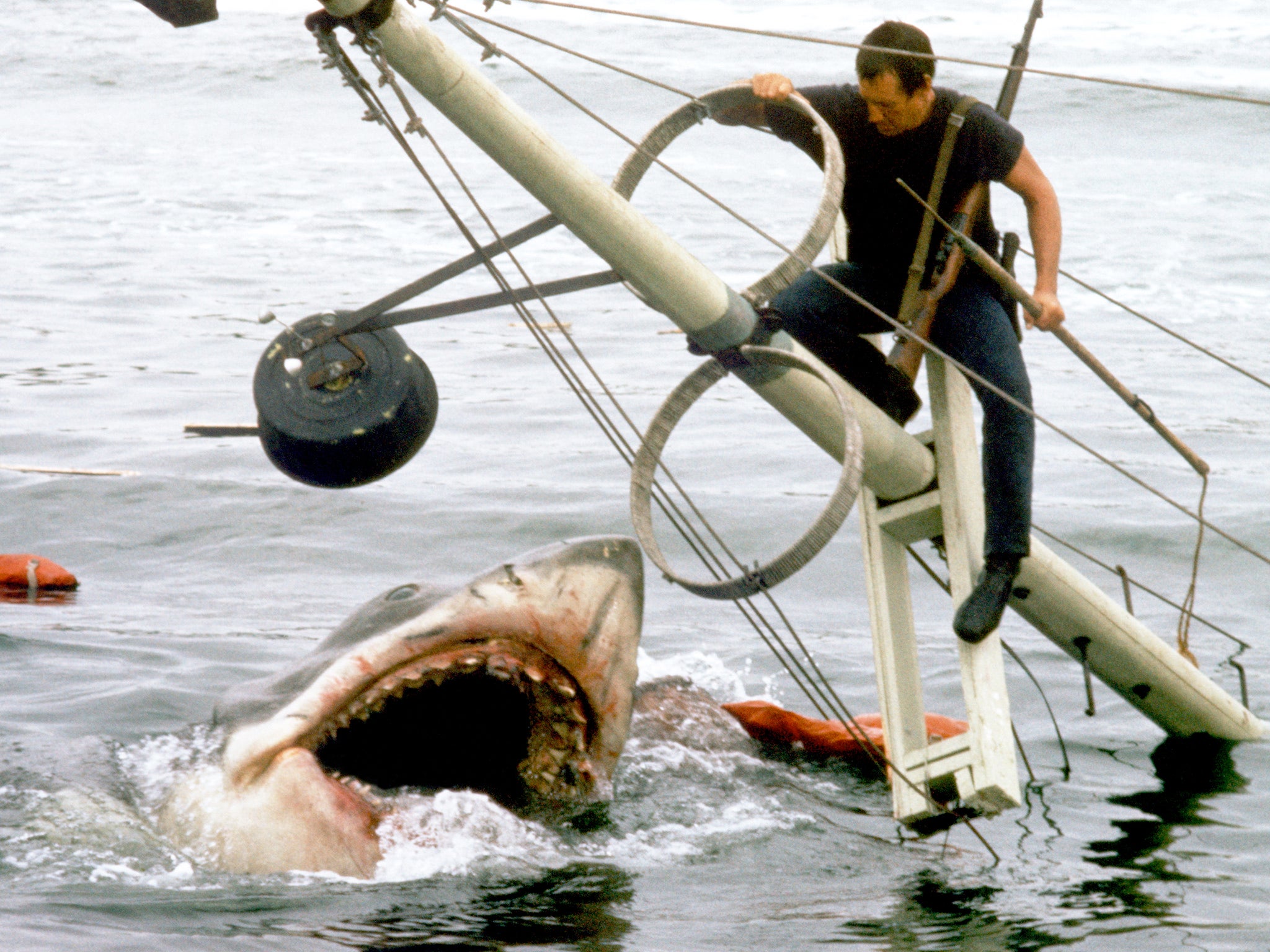
Jaws has a lot to answer for. Steven Spielberg’s Oscar-winning 1975 blockbuster and its indelible scenes of a remorseless great white shark terrorising the citizens of a small New England resort to the sound of the scariest score in cinema history had a profound impact on its worldwide audience.
Chief Brody's deathless reaction when he first comes face-to-face with the immense creature – “You're gonna need a bigger boat” – has consistently been voted the greatest line in movie history.
Depicting a ruthless killing machine with a seriously vengeful attitude, the global hit film inflicted massive damage on the reputation of sharks. After she saw it, one of my daughters refused to go into a swimming pool for several years. Sharks are in desperate need of a huge image makeover.
Which is where Megan McCubbin comes in.
Read More:
The young British wildlife filmmaker is smitten by sharks. She has been devoted to these much feared creatures ever since she first got close to a female tiger shark in the waters off Bimini in the Bahamas eight years ago. “That moment started my love affair with sharks and it hasn't stopped since.”
But she thinks sharks have been smeared, and now it is her mission to make us adore these much maligned animals as much as she does. In her new documentary, Megan and the Sharks, showing as part of CBBC's Planet Defenders season, she wants to encourage us to love the apparently unlovable.
Still only 26, McCubbin possesses a vocal passion for her work that is impossible to resist. “We have to be forthright about these things,” she asserts. “We don't have the time not to be.”
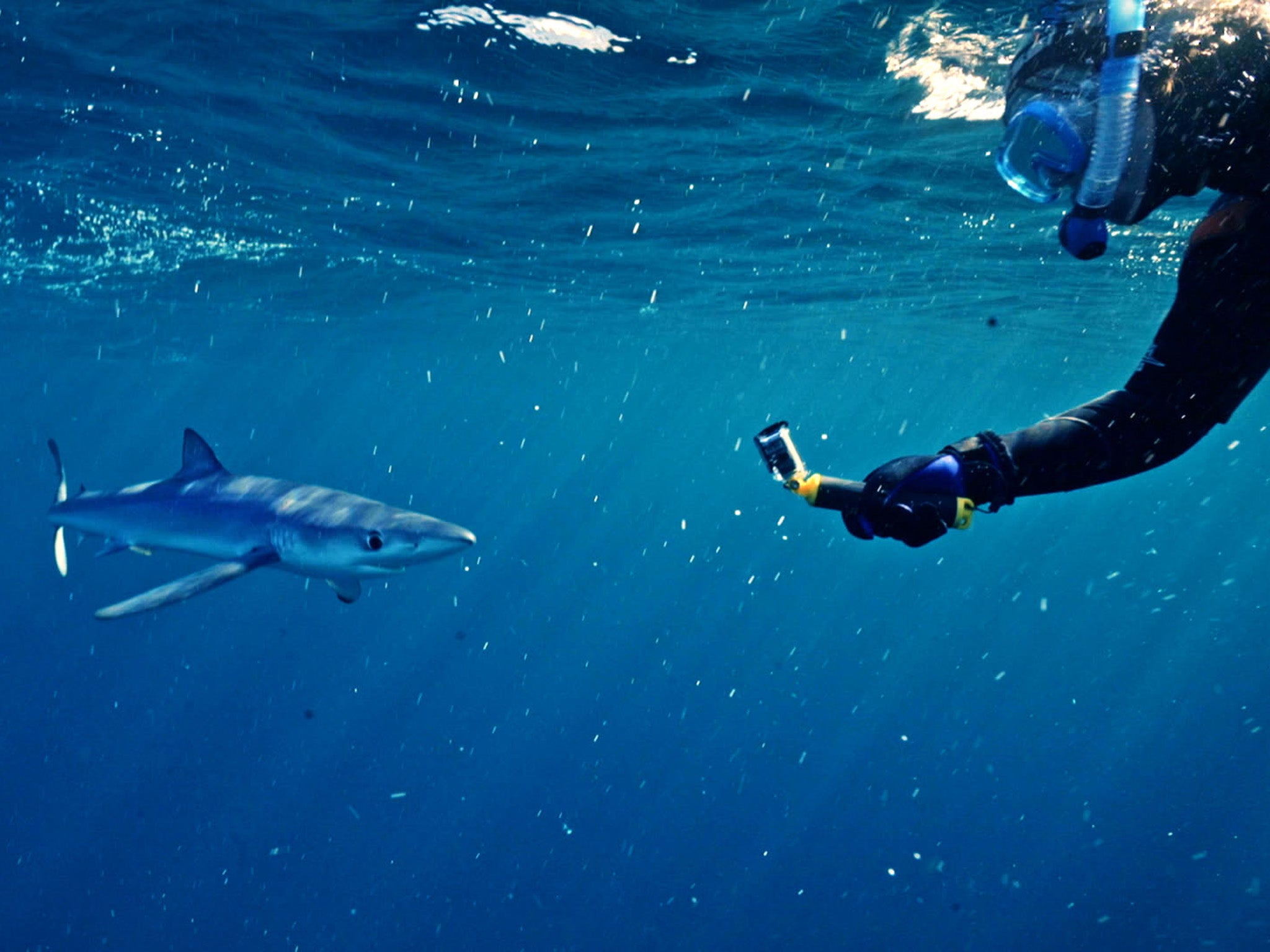
Talking to The Independent from her flat in Southampton, she is intelligent, incisive, idealistic, and above all, impressive. McCubbin has already amassed a significant body of work as a wildlife filmmaker and photographer. A graduate in Zoology from the University of Liverpool, she has also worked on many conservation programmes around the world, including a scheme researching the personalities and ecology of shark species at the Bimini Sharklab and a project in China to rehabilitate the creatures rescued from the bear-bile farming industry. She has presented an episode of BBC3's Undercover Tourist about the subject. In addition, with her stepfather Chris Packham, she has co-hosted Springwatch, Autumnwatch and Winterwatch on BBC2.
The presenter points the finger at Jaws as the culprit for the shark's unjustly negative image. “Sharks have a really bad reputation, and I feel they don't deserve that. When Jaws came out, that spearheaded this big fear about sharks. That started the ball rolling.”
The more we learn about sharks, the more that stigma disintegrates and the more we understand that they’re not how the media represents them at all
Unfortunately, that was only the beginning of what McCubbin sees as a sustained media misinformation campaign against sharks. “Since Jaws, we've had Sharknado [a hilarious, so-bad-it's-good schlock-horror movie about a tornado of sharks], which is the most ridiculous film. I watched it when I was at the Sharklab, and we were all laughing hysterically because it's so unbelievable. Sharks dropping from the sky! It's just ludicrous.
“More recently, we've had things like The Meg [not a biopic of the Duchess of Sussex, but an OTT movie about man vs mega-shark]. All of these films are biologically inaccurate, and they are entirely fear-mongering. If you didn't know anything about sharks, you wouldn't know that those films are complete fiction.” As a result: “Of course, sharks are going to get a bad rap.”
Now, McCubbin continues: “When you see the headlines about sharks, the wording is always really bad. Articles talk about 'death-defying moments' with sharks and 'a surfer who narrowly escaped with his life', next to a photo of a shark swimming 10 metres past him. From a scientific perspective, it is incredibly frustrating to see articles like because they promote fear, and there is no need for it.”
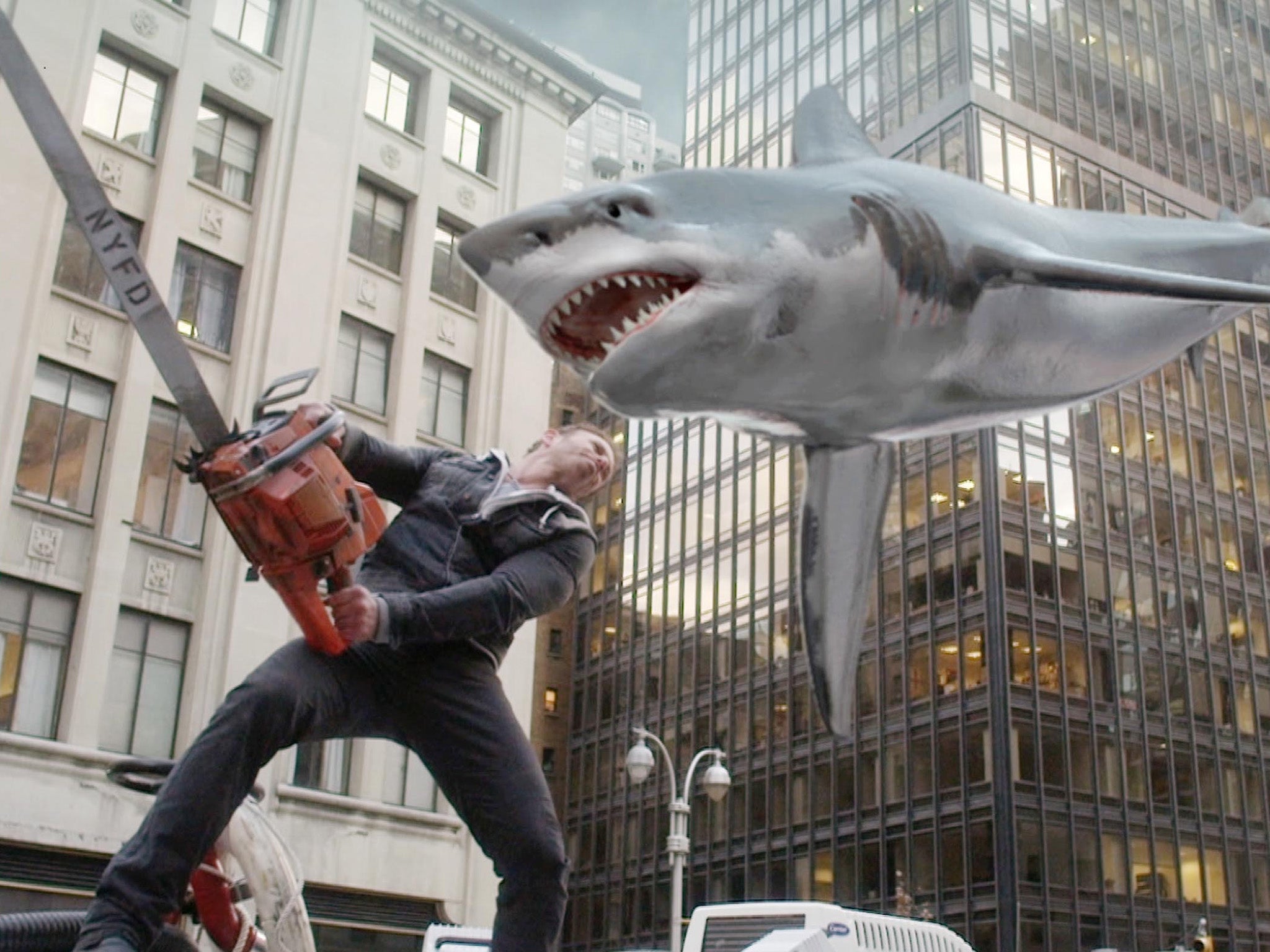
All this explains why McCubbin is so keen to set the record straight about these creatures in her episode of Planet Defenders, which focuses on the dangers faced by sharks around the shores of the UK.
She declares: “The more we learn about sharks, the more that stigma around them disintegrates and the more we understand that they're not how the media represents them at all. They are entertaining, beautiful, lovely creatures with big personalities.
“I really hope this programme can help rehabilitate the image of sharks and bust the myths that surround them. The more we can talk about sharks and show them in a positive light, the better chance we have of destroying those myths. I hope to bring about conversation and change. I want to tell the sharks' story and be a voice for the voiceless.”
The presenter is hopeful that she will be pushing at an open door with Megan and the Sharks. “Our audience is aware of environmental issues. Every day, they are more aware of the species that surround them and the declines they're facing. So I think there's a lot of appetite for trying to save these animals.”
She knows whereof she speaks. McCubbin has swum with sharks numerous times and is not in the least bit apprehensive around them. “The moment your head goes under the water, you're immersed in another universe.
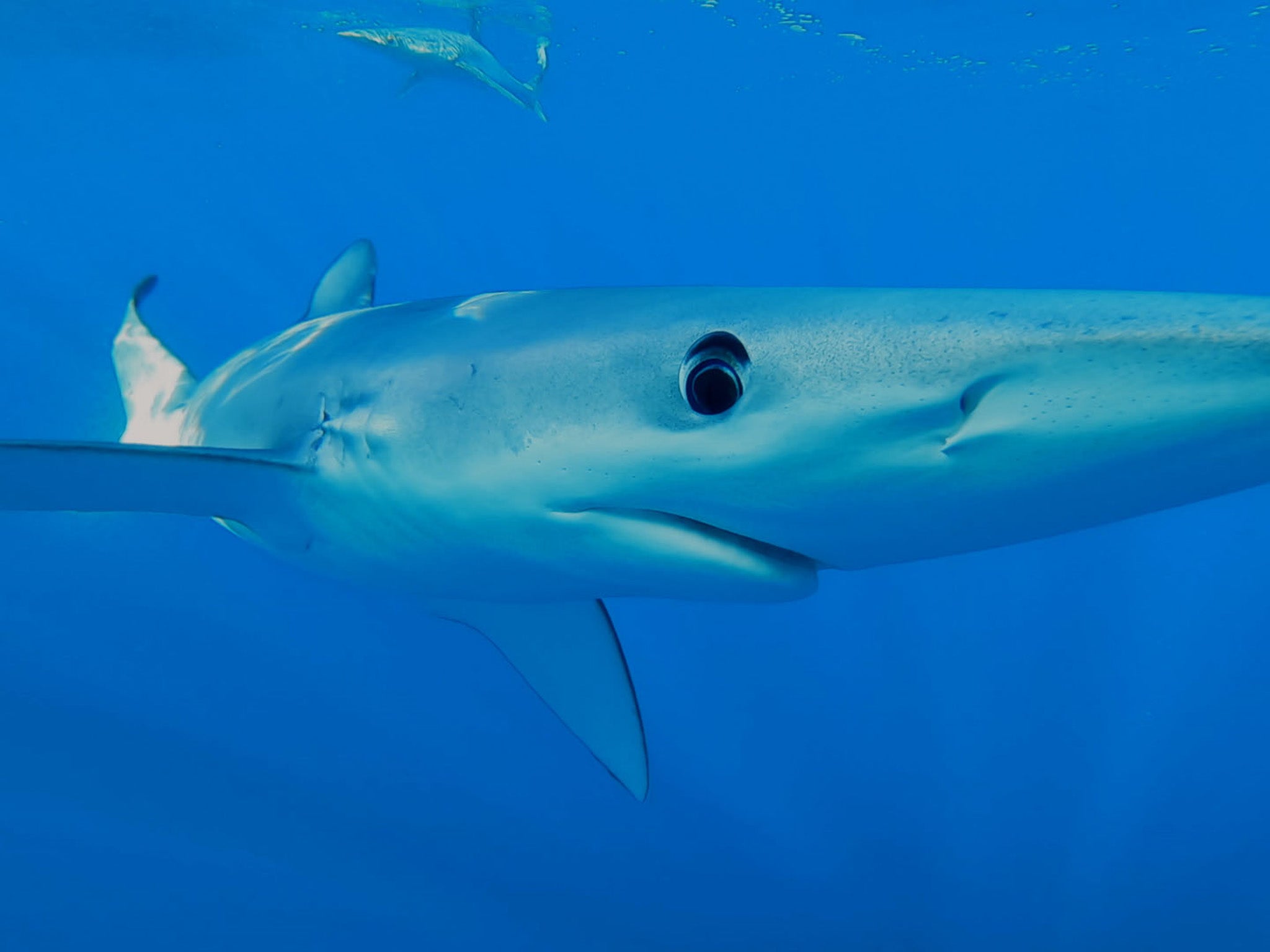
“When you become part of that environment, you have a unique perspective. You have the chance to understand their behaviour, the way they think and the way they feel. It's quite something.”
All the same, isn't it still terrifying to plunge into the water with sharks? Doesn't the Jaws theme tune ring in your ears? Isn't it impossible to get those memorable words from Mack the Knife – “You know when that shark bites with his teeth, babe, scarlet billows start to spread” – out of your head?
Not according to McCubbin. “You always have to respect wild animals. They are sharks at the end of the day. They have large teeth! They're an apex predator. But I do feel confident in the water with them.
“I've been in the water with sharks many times, and I have never ever felt for one second that I was in any danger. Every shark has a different personality. They are curious and engaging. They like to come up to you and bop you with their nose!”
As the former prime minister Tony Blair used to say, the key is education, education, education. “I'm never really fearful of the animal world because I want to understand it more than anything.
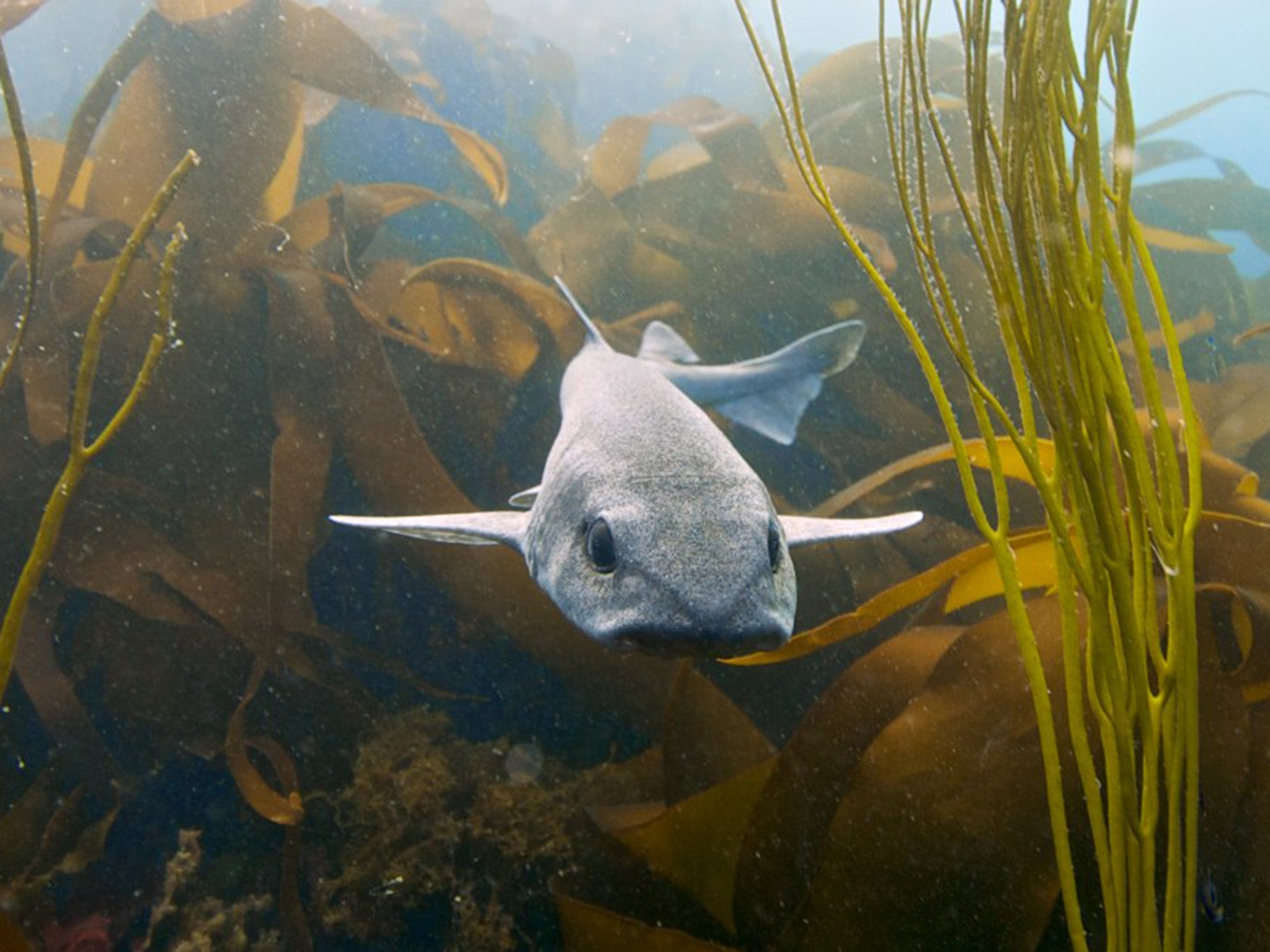
“We humans mislabel and misjudge animals all the time. We're very guilty of doing that to most species. But once you start learning more about an animal, whether it's a shark or a wasp or a rat, you're going to appreciate it for its ecological role.”
The presenter elaborates on the other reasons for making this episode of Planet Defenders. She is especially eager to tell us about the importance of sharks in the waters around the UK. “We often don't promote our marine environment as much as we should. But it is so full of life under the waves, and we're so lucky to have what we have in our waters.
“There are 40 species of shark around the UK, all differing in size and coloration and behaviour. But what is shocking is that scientists now consider 50 per cent of all British sharks to be threatened or near threatened, and that percentage is probably an under-estimation. Because sharks are migrants and not confined to one country, we don't have the whole picture. It's hard to keep tabs on them. They're really difficult animals to study because of how far they move and how quickly.”
What chance does any consumer have of making the right ethical decision when they’re being given something which is labelled as something else?
Despite these deeply concerning figures, however, “people don't consider that the UK is very complicit in the decline in shark numbers. But we have to face that head-on because we should be promoting our sharks and loving them.”
Surprisingly, one of the major threats to the future of sharks in this country is the fish and chip industry. One species is particularly in peril – the spiny dogfish, which in spite of its name, is actually a type of shark. “Once the spiny dogfish was the most abundant type of shark in UK waters,” McCubbin says. “It was very common. But now its numbers have declined by 95 per cent, and around the UK, they are critically endangered.”
To add to the confusion, in British fish and chip shops the spiny dogfish is sold under the name of “rock salmon”. “That is an umbrella term that hides many different species, primarily sharks. When you order it, you could be eating anything. It's been something that has been sold in our fish and chip shops for 60 or 70 years because it was a cheap source of fish.
“I wanted to understand a little bit more about how widespread that was. So I went to various fish and chip shops and collected samples of 'rock salmon'. I sent them off for DNA analysis and 100 per cent of them came back as spiny dogfish. That's devastating. I don't think I'm ever going to see a spiny dogfish now. The only time I’ve got close to one is battered in an old sheet of newspaper. That's not OK.”
She carries on: “We all understand more now the problems faced by our environment. The vast majority of us are consciously trying to do more to help our planet, whether that's turning the tap off when you brush your teeth, walking instead of driving or going vegetarian.

“But what chance does any consumer have of making the right ethical decision when they're being given something which is labelled as something else? If people went into a fish and chip shop and 'rock salmon' was labelled 'a shark species that is vulnerable globally', would they buy it? I bet the vast majority wouldn't.”
It is worth pointing out that, because of the shortages in the UK, “the spiny dogfish that we do consume here isn't caught in British waters. It comes from fisheries in Canada and America.”
For McCubbin, though, that is still “unacceptable because the spiny dogfish is globally vulnerable. Why are we eating something that's in decline? It just shouldn't be happening. There's no grey area. It's black-and-white. It's an easy thing to sort out. A species is in decline. What's the solution? We stop eating it!”
Just as sobering is the revelation that there has been a 71 per cent fall in the global shark population over the past 50 years. Megan and the Sharks addresses some of factors that are contributing to this worrying figure.
The presenter, who has for many years campaigned for stricter regulations on shark finning, says: “Sharks have it coming at them from all angles. They have direct persecution for their fins and for their liver oil, which is used in cosmetics. They're also facing climate change, oil spills, huge tankers.”
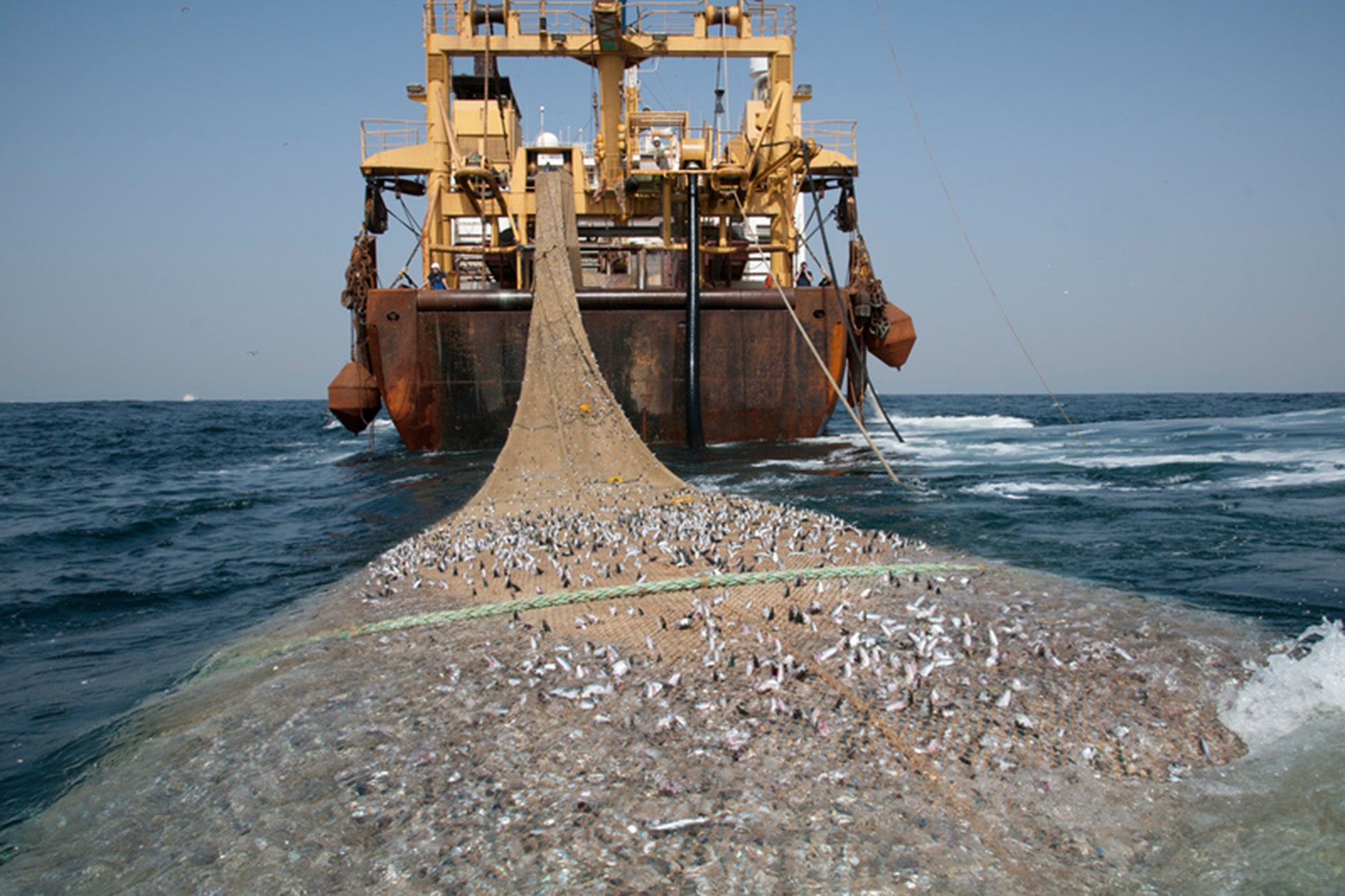
But perhaps the biggest threat to sharks is posed by industrial fishing. “A lot of industrial fishing happens on international waters, which are incredibly hard to regulate. The boats are out in the middle of the ocean, and there is no one there. A hundred million sharks are killed by humans every year, and a lot of that is in by-catch. It's a disaster.
“Industrial fishing methods, whether trawlers or long lines, are non-selective. They might be targeting a specific species of tuna, say, but the chances are, they're going to be catching a lot of other different types of animals at the same time. It is estimated now that 40 per cent of all fish caught are caught unintentionally. That is really, really shocking.”
McCubbin is a good example of the sort of highly committed young person who is now propelling the environmental movement. She says they are “certainly a very big force driving it. Young people have so much passion, so much knowledge and so much integrity when it comes to raising issues around the climate crisis.”
There is a biological reason why young people are fuelling this conversation. “Climate change is something our brains struggle to grasp because it is so vast. In the UK, we're in a position at the moment where we're not facing the brunt of it. Therefore, to the older generation, it's not an immediate threat. And so in terms of their brain chemistry, it's hard to comprehend.
“But for young people, that threat is much more immediate because it will be knocking on their doors within their lifetime. It's much more severe for young people because the world that they're about to inherit is dying. They're having to fight to make up for the mistakes of older generations. Because if they don't, it's their future that is threatened ultimately.”
Sharks regulate the fish population. Essentially, they manage the ocean. We are reliant on the ocean being healthy, so we have to protect sharks for our own wellbeing as much as for theirs
We cannot leave the subject without mentioning the enormous significance of the teenage campaigner Greta Thunberg. McCubbin says: “She's a hero of mine. She is so inspiring.
“She started off with a small action outside her school in Sweden. I bet she never thought that it would turn into this global phenomenon, but she has sparked a worldwide movement. It's brilliant to see this awakening. It's given me so much hope to see how young people are taking action on these issues.”
Hope is a word that often seems hard to come by when contemplating the future of the planet, but McCubbin refuses to succumb to doom and gloom. “I am always hopeful. Hope is a really powerful thing. You have to always be hopeful and always be moving forward to create change.
“When the figures came out about the 71 per cent decline in shark numbers, that hit home. I thought back to that tiger shark I saw in Bimini and wondered if she was OK. It's not always easy when you're faced with that sort of statistic.”
However, that alarm “is also a powerful emotion because you can harness that energy and turn it into something productive. I can wake up tomorrow and say, 'OK, yesterday, I saw that terrible statistic. What can I do to try to tackle it today?'
“I want sharks to be around for my lifetime, and for future generations – not only for the shark's sake, but also for the health of our oceans. They're really important. Sharks regulate the fish population. Essentially, they manage the ocean. We are reliant on the ocean being healthy, so we have to protect sharks for our own wellbeing as much as for theirs.”
This message of optimism is what McCubbin trusts audiences will take away from Planet Defenders, which also features episodes about saving dolphins off the coast of Kenya and India's only ape, the hoolock gibbon. “I hope people watch it and think, 'You know, I can be active and use my voice to raise awareness about things I'm passionate about – whether that is sharks, gibbons, elephants or rewilding. My voice does matter.' You're never too small to make a difference.”
Read More:
Finally, McCubbin expresses the hope that we can overcome the trait most likely to bring about our destruction: selfishness. “Unfortunately, we human beings are a selfish, greedy species. We take, take, take, and we don't want to give anything back. We are incredibly reluctant to change our minds. But when we're confronted by new facts, we have to be able to change our minds, and we have to be able to evolve with our changing environment.
“Because if we continue with the same practices that we have had for the past 50, 100 years, then there is going to be nothing left for future generations. I don’t know if I will, but if I decide to have kids at some point, I want a safe environment for them. It’s not about us – it’s about protecting our planet. It’s the only planet we’ve got.
“And if we don't look after it, we’re in trouble.”
‘Planet Defenders’ continues on CBBC with Megan and the Sharks at 6.35pm on Wednesday
Join our commenting forum
Join thought-provoking conversations, follow other Independent readers and see their replies
Comments